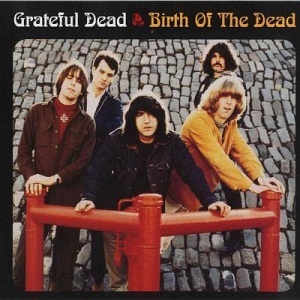
A jug band is a band employing a jug player and a mix of conventional and homemade instruments. These homemade instruments are ordinary objects adapted to or modified for making sound, like the washtub bass, washboard, spoons, bones, stovepipe, jew's harp, and comb and tissue paper. The term jug band is loosely used in referring to ensembles that also incorporate homemade instruments but that are more accurately called skiffle bands, spasm bands, or juke bands because they do not include a jug player.

Gustavus "Gus" Cannon was an American blues musician who helped to popularize jug bands in the 1920s and 1930s. There is uncertainty about his birth year; his tombstone gives the date as 1874.

David Grisman is an American mandolinist. His music combines bluegrass, folk, and jazz in a genre he calls "Dawg music". He founded the record label Acoustic Disc, which issues his recordings and those of other acoustic musicians.

The Memphis Jug Band was an American musical group active from the mid-1920s to the late 1950s. The band featured harmonica, kazoo, fiddle and mandolin or banjolin, backed by guitar, piano, washboard, washtub bass and jug. They played slow blues, pop songs, humorous songs and upbeat dance numbers with jazz and string band flavors. The band made the first commercial recordings in Memphis, Tennessee, and recorded more sides than any other prewar jug band.

Maria Muldaur is an American folk and blues singer who was part of the American folk music revival in the early 1960s. She recorded the 1973 hit song "Midnight at the Oasis" and continues to record albums in the folk, blues, early jazz, gospel, country, and R&B traditions.

Noah Lewis was an American jug band and country blues musician, generally known for playing the harmonica.
"Cocaine Blues" is a Western swing song written by T. J. "Red" Arnall, a reworking of the traditional song "Little Sadie".

William Shade Jr., known as Will Shade, was a Memphis blues musician, best known for his leadership of the Memphis Jug Band. He was commonly called Son Brimmer, a nickname from his grandmother Annie Brimmer. The name apparently stuck when other members of the band noticed that the sun bothered him and he used the brim of a hat to shade his eyes.

Birth of the Dead is a two-CD compilation album chronicling the early years of the San Francisco psychedelic band the Grateful Dead. The set was originally part of the twelve-CD box set The Golden Road (1965–1973), released on October 16, 2001, then was released as a stand-alone album on March 25, 2003. The album consists of various studio and live tracks of seven original songs and a number of covers.

The Pizza Tapes is an album by Jerry Garcia, David Grisman (mandolin), and Tony Rice. It was recorded at Grisman's studio on two evenings in 1993, and features unrehearsed performances of folk and bluegrass songs. It was released on the Acoustic Disc label on April 25, 2000.
"Blue Yodel #9" is a blues/country song by Jimmie Rodgers and is the ninth of his "Blue Yodels". Rodgers recorded the song on July 16, 1930 in Los Angeles with an unbilled Louis Armstrong on trumpet and his wife Lil Hardin Armstrong on piano. Armstrong and Hardin were not listed on this session due to Armstrong's contract with Okeh; this session was for Victor. According to Thomas Brothers, the irregular blues form along with the irregular phrases used by Rodgers frequently threw off Armstrong until he reached his own solo chorus, where he sticks to a regular 12 bar blues form.

Shady Grove is an acoustic album by Jerry Garcia and David Grisman. It was released on the Acoustic Disc record label in 1996. The album was produced by Garcia and Grisman for Dawg Productions. Also appearing on the album: Joe Craven, Jim Kerwin, Matt Eakle, Bryan Bowers, and Will Scarlett. "Hesitation Blues" is an uncredited track appearing at the end of the album.
Danny Kalb is an American blues guitarist and vocalist. He was an original member of the 1960s group the Blues Project.

Backstage Pass is a music documentary video by the Grateful Dead. It was directed by Justin Kreutzmann, the son of Grateful Dead drummer Bill Kreutzmann, and produced by Gillian Grisman, the daughter of musician David Grisman. It was released in 1992, and is 35 minutes long.

Dave Van Ronk and the Ragtime Jug Stompers is an album featuring Dave Van Ronk playing with a jug band.

The Even Dozen Jug Band is the debut and only studio album by the American jug band Even Dozen Jug Band, released in 1964.

David Grisman has issued albums with his groups the David Grisman Quintet and Old & In the Way, performed in duos with Jerry Garcia, Andy Statman, Martin Taylor, Hazel Dickens and Alice Gerrard, John Sebastian, Tony Rice, and played in the psychedelic band Earth Opera with Peter Rowan. He has produced solo albums and collaborated with musicians in many genres.

Historic Dead is a live album by the rock group the Grateful Dead. It was recorded at the Avalon Ballroom in San Francisco, California in late 1966, and released in June 1971.

Jerry Garcia was an American musician. A guitarist, singer, and songwriter, he became famous as a member of the rock band the Grateful Dead, from 1965 to 1995. When not touring or recording with the Dead, Garcia was often playing music in other bands and with other musicians.

American Epic: The Best of the Memphis Jug Band is a compilation album released to accompany the award-winning American Epic documentary film series. It collects performances from the Memphis Jug Band's career-spanning recording sessions for Victor Records and OKeh Records between 1927 and 1934. The album was released as a 15-track download and a vinyl LP.














